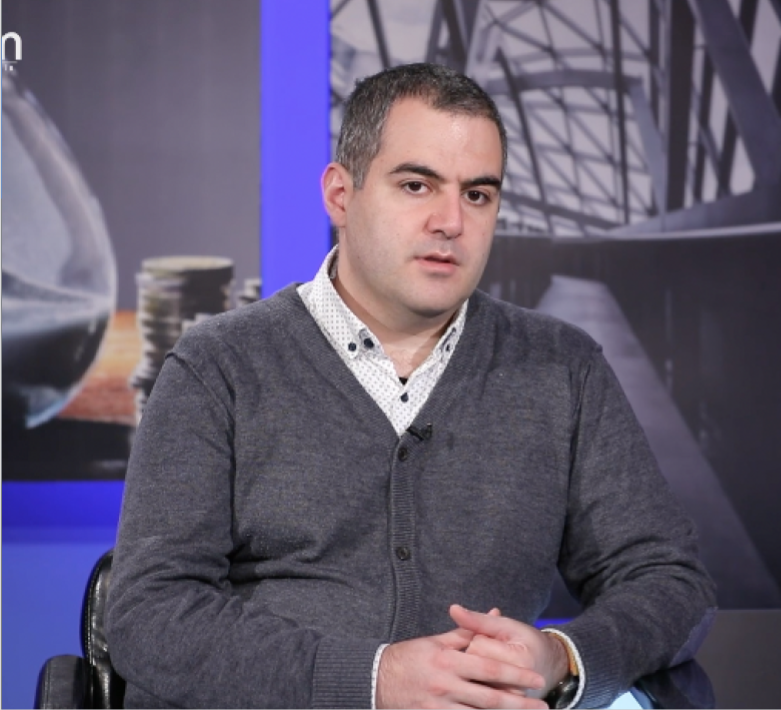
Guest:
- Hrant Mikaelian, a political scientist and multidisciplinary researcher in social sciences based in Yerevan. He is also a senior researcher at the Caucasus Institute.
“The full state-led attack against Artsakh and Armenia, which no-one in Europe condemned, was a case where the military solution worked. From 2020 onwards, many actors in the world see that you can attack and get away with it.”
Topic:
This is Day 8 of the blockade of Artsakh by Azerbaijan. 120 thousand people are effectively being held hostage by the regime in Baku.
Groong and 168 Hours are continuing our collaboration to bring you more English-language coverage on the developments of this very serious humanitarian crisis in progress. We are all in this together for the benefit of an informed Armenian public in these challenging times.
For those of you who haven’t heard of Groong before, we invite you to visit Groong’s podcast website at podcasts.groong.org to learn more and to subscribe. If you’re watching this on Youtube, the link will also be available in the description.
For Groong listeners, please visit 168.am for in-depth news and analysis.
Links:
- 168 Hours: https://168.am
- Groong: https://podcasts.groong.org
Episode 186 | Recorded: December 19, 2022
Show Notes
Discussion
Weekend Update
Late last week, after even resorting to the step of disrupting the flow of gas that goes through a pipeline from Yerevan to Stepanakert, the gas flow was restored. State minister Ruben Vardanyan indicated that the transportation blockade could also be lifted soon, however, as of now the Berdzor (or Lachin) corridor is still closed.
This land corridor is the only way people can move to and from Artsakh, and at this time the free movement of people to and from Artsakh is prevented by Azerbaijan. Stepanakert has an airport which could be used to airlift supplies from Armenia, but Azerbaijan has threatened to shoot down any aircraft that uses Artsakh airspace.
Some factoids:
- 120,000 people are collectively held hostage
- Out of those 30 thousand children, 20 thousand elderly, and 9 thousand disabled
- 350 people with disabilities and health issues are deprived of their right to seek medical care in Yerevan
- 11 people are in intensive care units in Stepanakert, including 10 children. Four of the ICU patients are in CRITICAL condition.
Food and supplies are running out, especially medical supplies including infant formula.
Questions:
- Anything I missed?
- Some people were hopeful that the corridor would be opened given an impending deadline given to Baku by the European Court of Human rights.
- Why is the Berdzor (or Lachin) corridor still closed?
ECHR Deadline, EU Fetes Aliyev
Last week, Armenia had applied to the European Court of Human Rights seeking an “interim measure” (or in other words an injunction) against Azerbaijan demanding the opening of the lifeline.
The ECHR had given Azerbaijan until today, Monday, 4pm Central European Time which expires in a few hours. So far, there’s no indication that even this deadline will make Azerbaijan move.
Instead, over the weekend, EU’s Ursula Von der Leyen was in Baku to celebrate an agreement to supply electricity from Azerbaijan to Europe via an undersea cable.
We have more than a hundred thousand people starving and locked up, but not a single EU official made a statement about this.
Questions:
- What lessons can be drawn from this deafening silence?
- Can you talk a little more about this electric cable? How much energy is meant to be supplied by this mode?
Armenian Silence
As a reminder, Artak Beglaryan, former Human Rights ombudsman of Artsakh and currently acting deputy state minister, is conducting a round-the-clock sit-in in front of the UN mission in Armenia. In fact, Hrant, I ran into you at that protest and I think you’d agree with me that the turnout, while very dedicated, was not that great.
Questions:
- Given that recent polls indicate that more than 90% of Armenians in Armenia are against Artsakh (Karabakh) being part of Azerbaijan, how do you explain the apathy and lack of physical engagement from the wider population?
I keep bringing this up. Here we are, condemning the silence of the EU, but as some of our viewers and listeners remind us, what is the government in Armenia doing?
I mean, there is a lot of criticism that can be thrown at this government for its failures in diplomacy, leading to the war. For the horrible execution of the war, leading to the devastating Armenian loss. We can blame them for further diplomatic missteps that only intensify the conditions of living hell that we are living through since then.
But just now, with the handling of this crisis, couldn’t the government in Armenia have done a better job in putting pressure on the EU office here for instance?
The government in Armenia has immense information resources. The Public TV channel which is now being used every day to criticize Russia reaches every corner of Armenia? Couldn’t they afford more coverage of the UN protests? So that UN officials felt that immense solidarity that is obvious from polling numbers.
What is the intention of the Armenian government?
Wrap-up
We hope you found our Conversations on Groong helpful, we invite your feedback and your suggestions. You can find us on most social media and podcast platforms. Thanks to Laura Osborn for the music on our podcasts.
Guests

Hrant Mikaelian
Hrant Mikaelian, a political scientist and multidisciplinary researcher in social sciences based in Yerevan. He is also a senior researcher at the Caucasus Institute. Hrant is a co-founder of the Armenian Project.
Hosts

Hovik Manucharyan
Hovik Manucharyan is an information security engineer who moved from Seattle to Armenia in 2022. He co-founded the ANN/Groong podcast in 2020 and has been a contributor to Groong News since the late 1990s.
Disclaimer: The views expressed by Hovik Manucharyan on the ANN/Groong podcast are his own and do not necessarily reflect the opinions of his employer or any other organization.